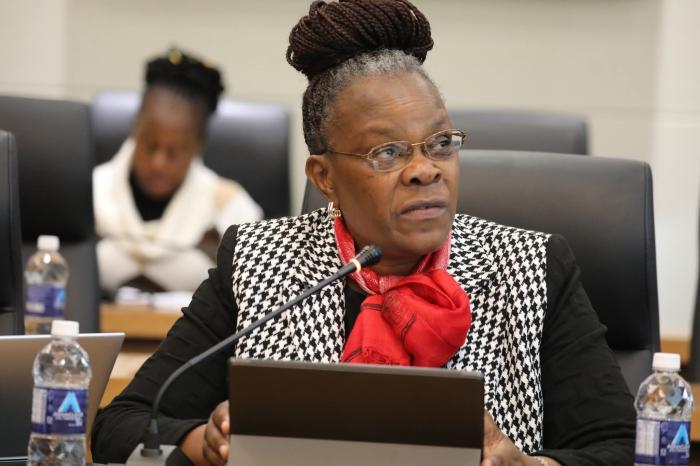Harare, 12 July 2025: The Zimbabwe Revenue Authority (ZIMRA) remains firmly on course to meet its 2025 annual revenue target of USD $7.2 billion, having already achieved USD $3.21 billion in net collections by mid-year against a target of USD $3.13 billion, the Commissioner General, Ms. Regina Chinamasa, told Parliament yesterday.
Appearing before the Parliamentary Portfolio Committee on Budget, Finance, Economic Development and Investment Promotion, Ms. Chinamasa outlined the Authority’s performance and key strategies being deployed to bolster revenue mobilisation.
The committee, chaired by Honourable Dr. Energy Mutodi, engaged the ZIMRA delegation on fiscal, operational, and policy implementation matters impacting national revenue collection.
Ms. Chinamasa attributed the positive performance to enhanced compliance and sustained implementation of strategic initiatives such as the Block Management System and post-clearance audits.
“We are witnessing encouraging compliance trends in the informal sector, thanks to the Block Management System introduced in 2024. Our regional kiosk facilities are empowering SMEs without access to digital platforms and ensuring inclusivity in our tax net,” she said.
She further noted that ZIMRA is targeting a tax-to-GDP ratio of 18% in 2025 although the recently released rebased GDP statistics for 2024 indicate a lower ratio for last year. In line with sentiments from key development partners, tax collections should rise following the increase in GDP.
However, she acknowledged that legacy debts of up to USD $800 million continue to constrain ZIMRA’s operational flexibility.
On customs operations, the Commissioner General reported that the deployment of drones at Beitbridge, Plumtree, and Forbes border posts had enhanced surveillance and yielded significant interceptions.
She also called for full integration of all border agencies into the Zimbabwe Electronic Single Window to improve efficiency and reduce cargo and passenger dwell times.
Challenges highlighted during the session included funding constraints for digitalisation, legislative misalignment on wealth tax, and the urgent need to modernise customs infrastructure.
In his remarks, Honourable Dr. Energy Mutodi underscored the critical role of ZIMRA in national development and affirmed the Committee’s commitment to strengthening the Authority’s capacity.
“As a committee, we need to support and capacitate ZIMRA given its strategic role in the country’s revenue collection matrix. Our oversight role entails ensuring effective policy implementation at that entity, hence our vested interest,” said Dr. Mutodi.
The committee also resolved to undertake a nationwide tour of major border posts, beginning with Beitbridge, to gain firsthand insight into ZIMRA’s operations, infrastructure needs, and digitalisation efforts.

